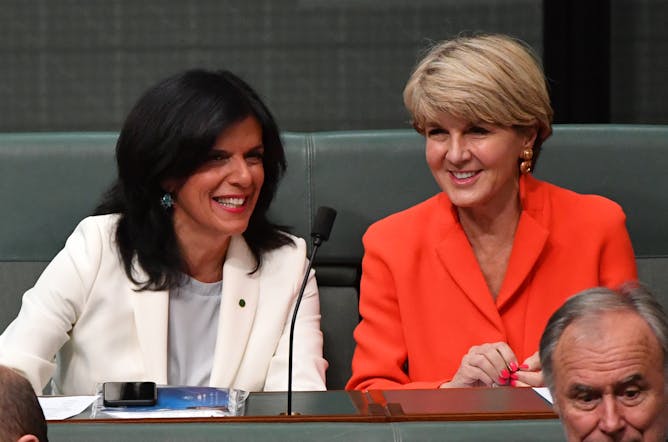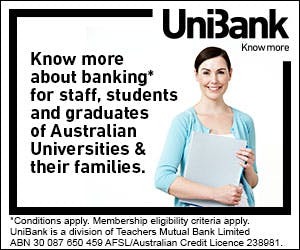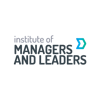|
|
|
Editor's note
|
|
Over the past few years you will have heard a lot about fake news, but Harvard researcher and head of the First Draft journalism project Claire Wardle recently told Fran Kelly on ABC’s RN the term is misleading and should be scrapped. I couldn’t agree more. Trust in media is in decline globally, and every time we talk about fake news we hasten the trend by spreading a myth of false equivalence. With Donald Trump labelling everything short of
sycophantic praise as “fake news”, too many people are falling into the trap of thinking “they’re all as bad as each other”.
But they’re not, and the differences matter. The New York Times might make mistakes, but its editorial standards are qualitatively superior to those at Fox News or a conspiracy theorist’s blog. In Australia the ABC has recently been under attack for giving a platform to Steve Bannon, but its rare debatable judgement calls actually underline its overall commitment to quality. We should be willing to critique media outlets robustly, but if we forget how to give credit where it’s due we destroy the incentive for media outlets to hold themselves to a higher standard.
Here at The Conversation we care about trust and accuracy above all else, and we aim to be utterly transparent about how we work. We start with using credible sources – academics with expertise on the topic they are writing about. While our authors are often passionate and opinionated, we seek to publish those who are free of any vested interest in the topic they are covering. And we ask all our authors to fill in a disclosure statement so our
readers are fully informed about any potential conflicts.
All our editors are experienced journalists who comply with the MEAA code of ethics. They are also answerable to me as editor, and ultimately to an Editorial Board made up of senior academics from across the Australian university sector. If we do make a mistake we don’t hide from it. We correct it promptly and prominently. If we need to retract an article we publish a separate article explaining what happened and why the article was removed. We even promote our corrections vigorously via social media – our aim is to do everything in our power to completely undo the damage we might have done by mistakenly publishing misleading information.
And if you’re interested in these issues – media literacy, fact-checking, public interest journalism, how to find information you can trust – you might enjoy this recent interview with The Conversation’s Digital Storytelling Editor Sunanda Creagh on the ABC Radio Sydney program, Focus. And consider making a donation here to support The Conversation.
We don’t claim to be perfect, but we do claim to be different in ways that matter, and we think that’s something you ought to know about.
|
|
|
Top story
|

Liberal backbenchers Julia Banks and Julie Bishop during question time in parliament.
AAP/Mick Tsikas
Andrea Carson, University of Melbourne
New research shows that conservative voters generally fail to see how being female can impede political success, while left-of-centre voters list gender as the main obstacle to success.
|
Cities
|
-
Patricia Lane, University of Sydney
It's still mostly a case of 'buyer beware' when it comes to finding out about a property. But many buyers feel they should be told if, for example, it was the scene of a violent murder.
|
|
Arts + Culture
|
-
Joanna Mendelssohn, UNSW; Alison Inglis, University of Melbourne; Catherine De Lorenzo, UNSW; Catherine Speck, University of Adelaide
Dorrit Black, Grace Cossington Smith and Grace Crowley were some of many talented modernist women artists. But only with the advent of second wave feminism in the 1970s was their work properly acknowledged.
-
Robert Phiddian, Flinders University
Cartoonists have to compress their images, so they often use stereotypes. This objectifies the subject and is thus, inevitably, an othering process.
-
Sue Rabbitt Roff, University of Dundee
The 1973 purchase of Jackson Pollock's abstract expressionist painting – at a record price for the time – was a controversial moment in Australian art. Was it worth it?
|
|
Environment + Energy
|
-
Carla Archibald, The University of Queensland; Nathalie Butt, The University of Queensland
Google search histories can be used to reveal how much the public knows about climate change in countries all over the world - and how ready they are to take action to guard against its effects.
-
Tani Khara, University of Technology Sydney
India doesn't eat much meat per capita, but that might be changing: it's the fastest-growing poultry market in the world.
|
|
Health + Medicine
|
-
Jill Newby, UNSW; Chien Hoong Gooi, UNSW
R U OK Day is tomorrow, encouraging all of us to check in with others to see if they’re OK. But what if someone says “no”? What should you say or do? Should you tell someone else? What resources can you…
-
Bill Madden, Western Sydney University
To protect consumers to the best of its ability, AHPRA should have access to more data.
|
|
Science + Technology
|
-
Rania Fakhoury, Université Libanaise
Donor-driven e-government projects in developing countries often attempt to transplant what was successful elsewhere. But success requires buy-in from locals – both governments and citizens alike.
-
Peter Terry, University of Southern Queensland
We need to consider changing the rules of tennis, to make them more consistent across tournaments and players.
|
|
Politics + Society
|
-
Clare Corbould, Deakin University
The Herald Sun claims its cartoon of Serena Williams isn't racist, but it draws on 200 years of caricaturing of African women.
-
Michelle Grattan, University of Canberra
He said Quaedvlieg was “someone the Labor Party should not rely on”, calling him “your Godwin Grech”.
-
Adrian Beaumont, University of Melbourne
Another poor showing in the polls for the government, with analysis showing the Coalition most likely to lose support at the next election among the well-educated, the young and in Victoria.
-
Peter Read, Australian National University
Forefather of contemporary neoliberalism or violent dictator – Pinochet's complicated legacy in Chile and the world.
|
|
From The Conversation's Editor
|
-
Misha Ketchell, The Conversation
Trust it media is in decline globally, but as The Conversation's editor Misha Ketchell explains, why we shouldn't lose faith in the industry.
|
|
| |
Featured jobs
|

|
UNSW Sydney — Sydney, New South Wales
|

|
University of Tasmania — Hobart, Tasmania
|

|
Cancer Council Victoria — Melbourne, Victoria
|

|
Queensland University of Technology — Brisbane City, Queensland
|
|
|
|
| |
| |
| |

|
| |
| |
| |
Featured events
|

|
Level 1, 7 Macquarie Place, Sydney, New South Wales, 2000, Australia — The Institute of Managers and Leaders
|

|
Isabella Fraser Room, State Library of Victoria, La Trobe Street, Entry 5, Melbourne, Victoria, 3000, Australia — La Trobe University
|

|
30 Collins Street, Melbourne, Victoria, 3000, Australia — Monash University
|

|
John Niland Scientia Building, UNSW Sydney, Kensington, New South Wales, 2052, Australia — UNSW
|
|
|
|
| |
| |
| |
| |
| |
|
|
|
|
|
|
|